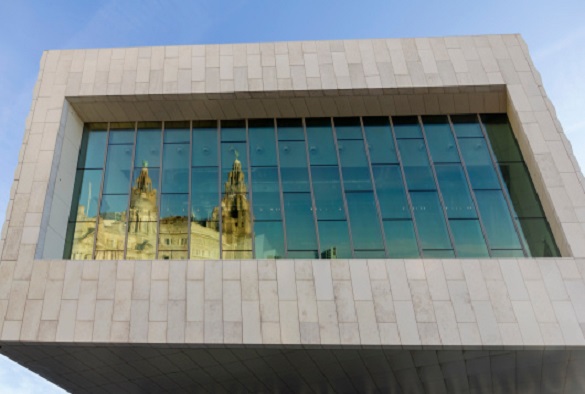How electronics can shape a more sustainable future
Published on

A conference exploring the important role that electronic technologies can play in shaping a more sustainable future will take place at Liverpool’s famous waterfront this week.
Organised by University of Liverpool and Queen’s University Belfast electrical engineering experts, the conference will consider how electronic technologies can help society become more sustainable and achieve net zero from developing better energy efficient devices, to using electronic technologies such as sensors to monitor the environment, and the role new materials can play in environmentally-friendly design.
The two-day event will be opened by Professor Laura Harkness Brennan, Associate Pro Vice Chancellor for Research & Impact at the University of Liverpool and the programme features international research leaders from a range of disciplines across the field of sustainable electronics including Professor Francis Balestra, Professor Deji Akinwande, Professor Hannah Joyce and Professor Steve Furber.
A special networking event will be held at The Spine in Paddington Village for industry to find out about the opportunities available for research collaboration in the race to meet their net zero goals.
Conference director, Dr Ivona Z. Mitrovic, from the University’s School of Electrical Engineering, Electronics and Computer Science, said: “Electronics is at the cutting edge of technological innovation and has a huge role to play in making the world more sustainable. This conference will consider some of the exciting developments and opportunities in this interdisciplinary but vital field.
"On behalf of the UKRI eFutures network lead Professor Roger Woods and the University of Liverpool, I welcome delegates from across the world to the waterfront in Liverpool to enjoy the conference and the fantastic city of Liverpool itself.”
Sir Robin Saxby, technology entrepreneur, alumnus and visiting Professor at the University of Liverpool, will also speak at the conference. Sir Robin graduated with a degree in Electronics Engineering from the University in 1968 before going on to enjoy a long and successful career in the technology sector.
He said: “I am looking forward to giving my presentation sharing my experiences and knowledge of working in the technology sector. The better use of electronics, software and data will create opportunities and solutions to address global challenges including climate change."
“How well we work together is just as important as the base technology. I will share some of the human lessons I have learned over the years. It is only through collaboration, sharing knowledge and bringing together expertise from different disciplines and communities that we will be able to deliver a sustainable future.”
`Electronics for Sustainable Societies’ takes place from 14 – 16 September at the Museum of Liverpool with a gala dinner at Liverpool’s Maritime Museum.
To find out more about the conference, please visit this web page: https://efutures2.com/ess2022/
You can follow the conference on twitter @efuturesuk and using the hashtag #ESS22.
The conference is supported by the UKRI / EPSRC eFutures Network which supports people researching and working with electronic systems across the UK.
